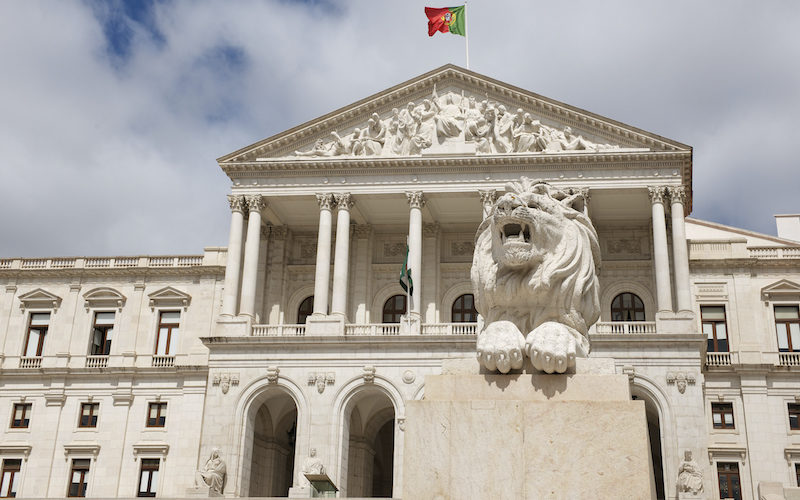
Timely and extensive interventions have facilitated Portugal’s success in addressing COVID-19.
The way in which Portugal addressed the challenges posed by the coronavirus pandemic has been hailed as one of the most successful national responses to COVID-19. Commentators have called Portugal’s response exemplary while portraying the country’s management of the public health crisis as exceptional when compared to other European countries’ responses.
At just over 35,000 square miles—slightly larger than the state of Maine—and framed by Spain along its land borders, Portugal’s average width is around only 88 miles. One could have expected COVID-19 to affect Portugal and Spain in similar ways. Yet that was not the case. The death toll associated with COVID-19 has been 30 times lower in Portugal than neighboring Spain.
Although Portugal’s health care system has been the subject of recent reforms, health inequalities are still pervasive. A 2017 study by the Organization for Economic Cooperation and Development and the European Observatory on Health Systems and Policies found that these reforms are lacking for populations aged 65 and older, precisely the populations at greater risk when exposed to the novel coronavirus. Despite this disparity in health care resources, Portugal has fared better than several other Western European countries during the pandemic.
Early Declaration of State of Emergency. The first critical factor in the success of the Portuguese response to COVID-19 was its timeliness. Portugal moved to declare a state of emergency on March 18, seven days after the World Health Organization declared COVID-19 a pandemic. At that point, there were nearly 650 cases of COVID-19 and two reported deaths among Portugal’s population of 10 million. By contrast, in Spain, a country of nearly 47 million people, when a state of emergency was declared on March 14, there were already over 4,200 cases and 120 deaths.
Article 19 of Portugal’s Constitution allows the President to initiate a declaration of a state of emergency based on highly disruptive events, including “public disasters.” This recent declaration was the first time that the government declared a state of emergency since Portugal transitioned from a dictatorship to a democracy in 1974. A declaration of a state of emergency allows Portuguese authorities to curtail several fundamental rights partially, including the ability to travel nationally and internationally, the right to gather for worship, the freedom of assembly, and the right to strike.
During the COVID-19 crisis, Portugal imposed all of these types of restrictions as of March 19. The presidential decree enabled the government to temporarily restrict freedom of movement within the country through the imposition of a general “duty of home isolation,” which roughly matches the concept of a stay-in-place order in the United States. Elderly people aged 70 and over were placed under a “special duty” of home isolation, which some commentators criticized as stigmatizing and was later dropped. In addition to placing restrictions on social gatherings, religious gatherings were also banned. Commercial establishments were ordered to shut down unless they were deemed essential, a category that included pharmacies, grocery stores, gas stations, and banks. Restaurants were allowed to provide take-out and delivery services only. The right of workers in health care and other critical areas to strike was also temporarily suspended.
Even before the declaration of a state of emergency went into effect, Portugal announced that it would be closing all public and private schools starting March 16 and at least through mid-April. The Portuguese government made this announcement when there were only about 80 confirmed cases of COVID-19 in the country.
Additional Restrictions During Religious Holidays. A state of emergency can only be declared in Portugal for periods of up to 15 days. Portugal renewed its ban twice in April, further adopting a set of measures especially targeted at the Easter period, which is normally the second busiest travel holiday in the country after Christmas. Between April 9 and April 13, Portuguese citizens were only allowed to travel within their municipality of residence, except for movement related to health or other reasons of “imperative urgency.” Some types of workers and public servants, including health care and public safety workers, were exempted from this prohibition to perform their professional duties.
Both President Marcelo de Sousa and members of the government publicly addressed Portuguese citizens on multiple occasions, asking those who live in Portugal to forgo Easter celebrations with their extended families and imploring those who live abroad not to visit during Easter. Passenger flights in and out of Portugal were also suspended during this period of time.
Switch From the State of Emergency to a State of Calamity. The state of emergency in Portugal lasted from March 19 through May 2. After that, Portugal transitioned to a state of calamity, which is regulated by a different law that allows the government to impose a state of calamity for limited periods of time without an intervention from the President or the Parliament. This regulation is the same mechanism of response that was used when Portugal struggled with summer wildfires in 2019. Even before the declaration of a state of emergency, the government had used a declaration of a state of calamity to place the small Portuguese city of Ovar, one of the early epicenters of COVID-19, under a cordon sanitaire—a public health measure, recently used in the response to Ebola, that places a designated area under quarantine for a limited period of time.
The declaration of a state of calamity ushered in a period of phased reopening in Portugal. The government issued new guidelines that continued to mandate several procedures for disease monitoring, contact tracing, and isolation of infected populations. While public health authorities continued to urge people to avoid unnecessary social interactions, the government eliminated the distinction between the elderly and populations under 70 years old in connection with the duty of home isolation. Instead, they announced what became understood as a general obligation to minimize social contact.
In early May, the government also started to permit small gatherings set at 10 people, a number that was progressively revised upward as phased reopening continued. In late June, however, the Lisbon metropolitan area reverted to the 10-person cap, as Portugal’s capital started to see an increase in new COVID-19 cases during the later stages of phased reopening.
Initially, the new rules limited gatherings within enclosed spaces of up to approximately 1,100 square feet to five people. Small commercial establishments, approximately 2,150 square feet or less, were allowed to open first, subject to different conditions based on the type of establishment. Some businesses, such as hairdressers, were required to operate by appointment, while others were required to operate at a percentage of overall capacity, such as movie theaters.
To further encourage the use of masks, which was made mandatory at the beginning of the state of calamity, the government enacted a new law that imposed fines between 120 and 350 euros for failure to wear a mask or other required protective gear, such as a visor. The obligation to wear a mask was designed broadly, covering the provision of services and entrance into commercial establishments, educational establishments, and daycare centers, among other locations.
Although Portuguese constitutional law scholars agree that a state of calamity carries less severe restrictions to individual freedoms than a state of emergency, there was heated debate about the precise extent of the measures that the government could adopt during this new phase. For instance, some experts argued that church gatherings could not be limited during the state of calamity, as there is no parliamentary check on the government’s intervention, and a legislative intervention is required to limit fundamental rights that the Constitution protects. The Portuguese government, however, ended up maintaining restrictions on church gatherings and other forms of religious celebrations through the end of May.
Portugal’s Approach to Immigration During Border Closures. The border between Portugal and Spain closed on March 15 by mutual agreement between the two countries. Even when Spain opened its border to France in June, the border with Portugal was set to remain closed until July.
Portugal’s strict border closure policy was matched by a generous approach to immigration. The Ministry of Internal Administration established in March that anyone with a pending immigration-related application, a category that included refugees and asylum seekers, would be given the same treatment as permanent residents throughout the state of emergency and the state of calamity. The government reportedly stated that the temporary grant of many of the same rights of permanent residents was designed to afford migrants access to fundamental goods as well as the exercise of fundamental rights during the pandemic, including access to the National Health Service,—Portugal’s health care system—the ability to work, and the opportunity to open a bank account.
Overall, Portugal’s response to the COVID-19 crisis has been comprehensive in limiting pathways for the virus to spread while also putting in place robust testing and contact tracing protocols. Perhaps most important of all, Portugal acted in this comprehensive fashion early, when the case count was extremely low.
Even though there have been some recent setbacks in major metropolitan areas, Portugal so far has been able contain the virus relatively well and limit some of its most extreme adverse effects on public health. By adopting a wide-reaching package of initial measures and only gradually lifting restrictions, the Portuguese response confirms the need for early interventions matched by phased, closely monitored, reopening strategies.
This essay is part of an ongoing series, entitled Comparing Nations’ Responses to COVID-19.




